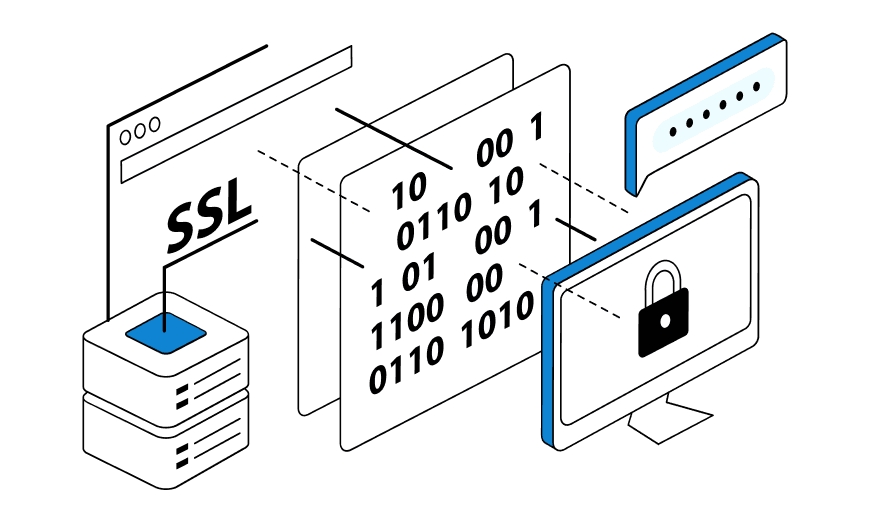
Electronic payment systems have become the backbone of modern online commerce. PayPal, Stripe, Wise, Revolut and other platforms process millions of transactions every day. But along with increasing convenience comes increasing risks: from identity theft to unexpected blocking of accounts without explanation. Therefore, businesses and private users are increasingly thinking about additional protection.
Using proxies is one of the key ways to reduce the probability of problems when working with electronic finances. They can be used to protect payment system accounts, control geolocation, emulate “white” behavior and preserve anonymity in sensitive transactions. This is especially important for international eCommerce, where reliable connectivity and compliance with platform rules is a must.
Let’s take a look at what threats payment system users face, how not to get banned from a payment system, and why more and more entrepreneurs are looking to buy proxies for secure online transactions.
Risks of keeping money in payment systems
Storing funds in e-wallets may seem convenient, especially if you work with different countries or freelance platforms. However, most users don’t think about the risks associated with this choice. Violation of rules, suspicious activity, similar IP addresses – all these can lead to freezing of funds or blocking without warning.
Using reliable proxies for eCommerce business allows you to avoid such situations. Especially when it comes to working with multiple accounts, automated payments or integrating payment solutions into trading platforms.
Personal data leakage
The first and most common threat is the theft of logins, passwords, bank card data and other sensitive information. Hackers use phishing, malware and the interception of unsecured traffic. In such conditions, a stable encrypted channel through proxies becomes critical.
Protection of payment system accounts in this context is impossible without a comprehensive approach. Reliable proxies mask the real location, hide the digital footprint and help avoid monitoring by fraudsters and even payment services themselves.
Involvement of third parties
Many platforms block accounts for suspicious activity: mass logins from different IPs, sudden changes in geolocation, logins from “black” addresses. All this can lead to suspicions of account use by third parties, even if you work alone.
In order not to get a ban in the payment system, it is necessary to use geo-adapted proxies, which ensure the stability of the entrance and preserve digital “purity”. This is especially relevant for online business owners who do business from different countries or transfer access to employees.
Credit card fraud and other payment methods
If the platform detects non-standard activity – for example, logging in from another country and immediately attempting to make a payment – it can be perceived as hacking or fraud. The result: verification, blocking or complete deletion of the account.
To avoid this, users increasingly decide to buy proxies for secure online transactions. These are premium solutions with a high level of anonymity, stable speed and IP addresses that do not fall under the filters of payment systems.

How is security ensured in payment systems?
Payment platforms are actively implementing protection mechanisms, but the responsibility for security still lies with the user. Blocking, temporary freezes and transaction verification often occur not because of malicious intent, but because of trivial mistakes: logging in with a new IP, suspicious activity or violation of internal policies. Therefore, if you don’t want to lose access to funds, it’s important to follow a few simple but critical rules.
If you are interested in how not to get banned in the payment system – follow these recommendations.
Protect your passwords – enable 3D Secure
3D Secure technology adds an extra layer of security to online purchases. Even if attackers gain access to your card, without confirmation via SMS or app, they won’t be able to complete the transaction. Always activate this option in your bank’s personal cabinet.
Use personal devices
Make logins and transactions only from verified devices. Regularly changing your IP address from different browsers or phones can raise suspicions of the payment system. If you have to work from several locations, consider such an option as renting a proxy – this will allow you to create a “familiar” digital environment, which the platform considers safe.
Don’t disclose sensitive information
Never send your card details, CVC code or account login via messengers or mail. No payment service requires this – not even when verifying your identity. Violation of this recommendation often leads to data theft and account lockout.
Control your transactions
Regularly check your transaction history. If you notice suspicious payments, freeze the card or temporarily disable access to the account. Monitoring is the best way to get around payment blockers, because you’ll spot a problem before it becomes critical.
Keep an eye on the expiration date
An expired card is a common cause of payment failures and subsequent account verifications. Update your data in a timely manner to avoid getting caught up in internal risk algorithms.
Set limits on online payments
This is a simple but effective way to keep yourself safe. A limit reduces the risk of large losses in case of hacking and signals atypical debit attempts. Many banks and payment systems allow you to set separate limits for different types of transactions.
Use proxy services or other means of masking online activities
If you run an eCommerce business or work with multiple payment platforms, it’s important to maintain a consistent digital behavior. Using a proxy for eCommerce payments allows you to capture geolocation, emulate a familiar environment, and reduce the likelihood of verification.
Choose reliable proxies for eCommerce businesses, especially if working with overseas systems. Make sure proxies support HTTPS, have low latency and a stable IP pool. Ideally, they should have the ability to rotate and select a specific country.
Which payment systems are considered the most reliable?
There are many electronic payment services on the market, but not all of them are equally reliable and safe. The choice depends on the purpose, geography and method of use. Nevertheless, there are a number of platforms that have earned the trust of both individuals and eCommerce businesses around the world:
PayPal is one of the oldest and most widespread services. It has a strict anti-fraud system, support for buyer protection and a wide range of tools for sellers. However, high requirements are imposed on accounts, and even a small deviation from “typical behavior” can lead to the freezing of funds.
Stripe – actively used in online stores, especially in the USA and Europe. Simple integration, flexible settings, support for subscriptions. The main thing is compliance with KYC requirements and a stable connection.
Wise (ex-TransferWise) – convenient for international transfers. Highly transparent rates and easy to use.
Revolut, Payoneer, Skrill – suitable for freelancers, agencies, small trading platforms.
Even with a reliable platform, it is important to keep in mind: security depends not only on the service, but also on you. Using proxies together with payment systems is not just an additional option, but an important part of the protection strategy.
Why is it necessary to use proxies from LTESocks when working with online payments?
Every payment system monitors from which devices and IP addresses your account is accessed. If you log in from different countries, use unstable connections or suspicious proxies, you may be suspected of bypassing the rules. And this is a risk of ban and blocking of funds.
That’s why proxies for PayPal, Stripe, Wise and other systems should be not just “some” but professional. And in this context LTESocks proxies are one of the best solutions on the market.
Benefits of using LTESocks:
- High level of anonymity. Payment systems do not record unstable behavior and do not see “bouncing” IPs.
- Wide choice of geolocations. You can fix your login, for example, from Germany, and always use this IP when logging into PayPal.
- Mobile and resident proxies. They look as natural as possible and almost do not succumb to automatic blocking.
- HTTPS support and stable speed. Ideal for integration with payment APIs, CRM and eCommerce platforms.
If you work with international clients, manage multiple accounts or just want to be sure of stability – proxies from LTESocks will help you avoid unpleasant surprises. It is a reliable basis for safe and predictable work with electronic payments.









